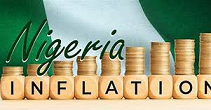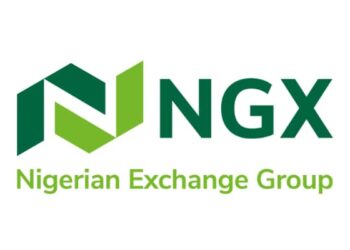The impact of the rising cost of living is being felt globally, albeit in different ways, and it is evident that expenses and bills are continuing to rise sharply. The cost of food, household consumables, and other essentials has skyrocketed in recent times, affecting not only Lagos State the economic nerve of the country but also in all villages and cities from Bodija to Sapele, Shagamu, Asaba, Jos, Kano City, Calabar, Jalingo, Anambra, and Aba name it. The inflation particularly increase in food prices is a result of economic complexities, a lack of confidence in currency valuation, and limited foreign exchange capacity, which is further reducing the disposable income of the majority.
Today, a loaf of bread that was N350 in 2020 is now about N1,500, an over 200 per cent increase in four years. Similar percentage increases have occurred in the cost of flight tickets, health care, rents, diesel, cooking gas, bags of rice, crates of eggs, a kilo of chicken or turkey, and many other essentials due to inflation, while income has remained the same or even decreased. Nothing is easily affordable, and everything is out of reach for the masses. Given the country’s current situation and the fact the fact that many people have not seen a growth in their income, this has resulted in reduced or no savings, increased frustration, and dissatisfaction with fulfilling basic demands amongst many. There is always the possibility and anxiety of losing jobs or businesses folding up regardless of the length of service put up, experience acquired, or available connection, and these consequences may even be more severe. Employers, in fact, are hesitant to implement any wage increases for economic reasons, despite the agitations. Inflation continues to have a severe negative impact on Nigerians mental, emotional, and physical well-being, as well as on marriages, health, and livelihoods. Currently, even with a steady, regular salary, living has become more expensive with heightened uncertainty, high inflation, and weak purchasing power, especially for the masses, including civil servants, entrepreneurs, and small business owners. Therefore, diversifying sources of income and having multiple streams is one way to ensure protection during this challenging time. Given that you have multiple bills, why not consider diversifying your income streams to offset any inadequacy?
Therefore, in addition to salary or business income, it is important to source other income avenues to meet rising needs, poor business performance, and inflation. Weak financial capacity and rising daily expenses pose a threat to the sustainability of individuals, businesses, and even households. Therefore, it is imperative to take action, as having multiple streams of income has proven to be invaluable. According to my observations, the majority of people and households in the country rely solely on earned income, whether it’s a salary or daily income from a business, and they constantly hope that nothing bad happens. Living pay check-to-pay check can severely affect mental health, increase anxiety, depression, and stress, and many are unaware of the implications for their health.
Consequently, having multiple sources of income is the best way to protect yourself, your company, and your family against drastic financial change. The tools for generating these multiple streams of income are readily available on the internet or by hiring a professional. We have greater access than ever before to information, people, ideas, and opportunities on social media, so tap into this. Active income demands your full attention and effort, requiring you to be available from 8 a.m. to 5 p.m. daily, whereas passive income generates with minimal effort and attention, allowing it to operate while you sleep. So, to complement active income, passive income, such as investing, can generate income through dividends, interest, and return on capital. Depending on the market and your financial circumstances, investing in real estate might provide you with high returns and rental income. However, if you are unable to build for rent, consider acquiring and protecting a piece of land; regardless of its distance, its value will increase. If you have years of experience in your field, you can start giving consultations or guest lectures as a means to earn another stream of income from your regular job or business. Another reliable method is to acquire assets that generate consistent and steady cash flow. Looking inward might just help as well, talents, abilities, and passion can be used to create potential that can provide income streams. Clearly, research has shown that having multiple streams of income as a plan aids retirement and provides the necessary comfort in old age. The primary advantage of having multiple income streams is that they provide a backup for financial stability during challenging or volatile times. That can provide the necessary hedge against uncertainty in a business, as well as during illness or disability for the entrepreneur.
In conclusion, it is reasonable to live below your means to make room for savings and then investment, no matter how little it helps along with side hustles. At this time, relying solely on a salary or daily business income is a danger. In an environment where job loss and unemployment are chronic, the decision to create multiple streams of income and secure financial stability is expedient. However, do not let your side-income streams put your primary and full-time job or business at risk, unless you can survive without them. Good luck!
How may you obtain advice or further information on the article?





